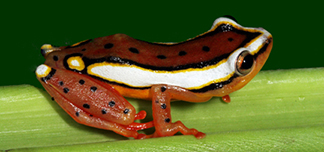| Publication Type: | Journal Article |
| Year of Publication: | 2001 |
| Authors: | D. Thieffry |
| Journal: | Journal of the history of biology |
| Volume: | 34 |
| Pagination: | 149-81 |
| Date Published: | 2001 |
| Abstract: | The present account aims to contribute to a better characterization of the state and the dynamics of embryological knowledge at the dawn of the molecular revolution in biology. In this study, Albert Dalcq (1893-1973) was chosen as a representative of a generation of embryologists who found themselves at the junction of two very different approaches to the study of life: the first, focusing on global properties of organisms; the first, focusing on the characterization of basic molecular constituents. Though clearly belonging to the organismic tradition, Dalcq was already blending his experimental and explanatory practices with biochemical aspects by the 1930s. Principally based on published sources, the present analysis focuses on the conceptual definitions, modifications and interrelations on which Dalcq’s explanation of development rested. Among these are variant process concepts such as gradients and fields, which are often thought to have strongly holistic implications. I will argue that Dalcq’s version of these concepts was compatible with a more reductionist treatment of embryos than was accepted by most embryologists as late as the 1950s, pointing to some extent toward the recent molecular characterization of gradients by molecular geneticists such as Christiane Nüsslien-Volhard. Moreover, I will show the embryological research program of Dalcq and his pupil Jean Brachet has been largely instrumental in the development of molecular biology in Belgium. |
Rationalizing early embryogenesis in the 1930s: Albert Dalcq on gradients and fields
Taxonomic name:
